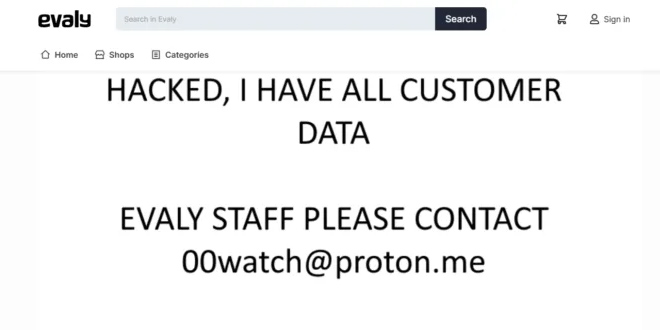According to an analyst, there will be major data breaches and fines for application developers who use generative AI (GenAI) extensively next year. Forrester made the claims in its 2024 predictions for cybersecurity, risk and privacy and trust.
Alla Valente, a senior analyst, issued a warning about the excessive use of “TuringBots”, which are GenAI assistants that aid in code creation. She emphasized the importance for developers to thoroughly scan the generated code for vulnerabilities.
By infosecbulletin
/ Sunday , June 1 2025
A hacker known as "303" claim to breach the company's systems and leaked sensitive internal data on a dark web...
Read More
By infosecbulletin
/ Sunday , June 1 2025
CISA and ACSC issued new guidance this week on how to procure, implement, and maintain SIEM and SOAR platforms. SIEM...
Read More
By infosecbulletin
/ Saturday , May 31 2025
The Qualys Threat Research Unit (TRU) found two local information-disclosure vulnerabilities in Apport and systemd-coredump. Both issues are race-condition vulnerabilities....
Read More
By infosecbulletin
/ Saturday , May 31 2025
New ransomware payment reporting rules take effect in Australia yesterday (May 30) for all organisations with an annual turnover of...
Read More
By infosecbulletin
/ Saturday , May 31 2025
Global makers of surveillance gear have clashed with Indian regulators in recent weeks over contentious new security rules that require...
Read More
By infosecbulletin
/ Thursday , May 29 2025
GreyNoise has discovered a campaign where attackers have gained unauthorized access to thousands of internet-exposed ASUS routers. This seems to...
Read More
By infosecbulletin
/ Wednesday , May 28 2025
The rise of online gambling in the country is leading to increased crime and societal issues. In response, the central...
Read More
By infosecbulletin
/ Wednesday , May 28 2025
Cybersecurity researchers recently revealed a coordinated cloud-based scanning attack that targeted 75 different exposure points earlier this month. On May...
Read More
By infosecbulletin
/ Monday , May 26 2025
Recent security research has shown that attackers can weaken zero-trust security frameworks by exploiting a key DNS vulnerability, disrupting automated...
Read More
By infosecbulletin
/ Saturday , May 24 2025
Evaly, a Bangladeshi e-commerce platform, is reportedly facing a major data breach that may have exposed sensitive information of around...
Read More
ALSO READ:
40 countries to sign a agreement not to pay ransom
In a blog post, she mentioned that if there are no proper protections for TuringBot-generated code, Forrester predicts that by 2024, at least three data breaches will be attributed to insecure AI-generated code. These breaches could occur because of security flaws in the code or vulnerabilities in suggested AI dependencies.
Regulatory issues may arise for apps that use GenAI products like ChatGPT to provide information to users.
Valente predicted at least one would be fined for its handling of personally identifiable information (PII).
The person mentioned that OpenAI has the means to protect itself from regulators, but third-party apps on ChatGPT may not have the same resources.
Some apps introduce risks through their third-party tech providers, but lack the resources and expertise to handle them properly. In 2024, companies should identify apps that may increase their risk exposure and focus on managing third-party risks.
The European Data Protection Board has created a task force to coordinate enforcement action against ChatGPT. This action was taken after the Italian Data Protection Authority decided to suspend the use of the product in Italy.
In the US, the FTC is investigating OpenAI.
GenAI may also play a part in Valente’s third prediction: that 90% of data breaches in 2024 will feature a human element. According to Verizon, the figure is already at 74%.
GenAI poses a significant risk to security. It enhances social engineering and enables attackers to efficiently carry out convincing phishing attacks.
“This increase [in people-centric risk] will expose one of the touted silver bullets for mitigating human breaches: security awareness and training,” argued Valente.
In 2024, CISOs will focus more on adaptive human protection. This is because NIST will update its guidance on awareness and training, and there will be more human quantification vendors available.
 InfoSecBulletin Cybersecurity for mankind
InfoSecBulletin Cybersecurity for mankind














